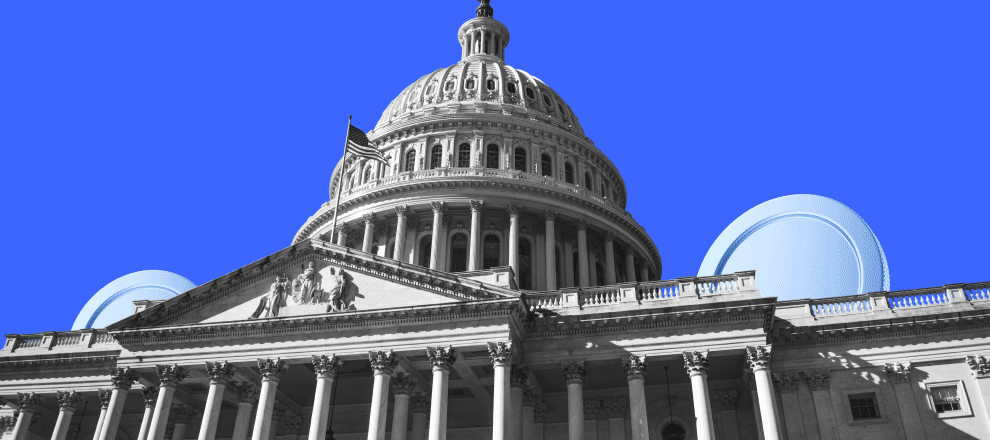The U.S. Congress approved, and President Donald Trump signed, the Guiding and Establishing National Innovation for U.S. Stablecoins Act (GENIUS Act), which introduces a federal regulatory framework for stablecoins and imposes strict requirements on their issuers.

On July 17, 2025, the U.S. Senate and House of Representatives approved the federal bill S.1582, the GENIUS Act, aimed at clarifying the regulation of the stablecoin market in the country. On July 18, 2025, the legislation was officially signed by President Donald Trump.
The bill prohibits the issuance and circulation of unsecured payment tokens, requires full backing of stablecoin reserves, and introduces mandatory reporting by stablecoin issuers to regulators. It also establishes a supervisory framework for the stablecoin market in the U.S.
Key provisions of the GENIUS Act :
- Stablecoins may only be issued by registered issuers. Any issuance without approval is punishable by fines up to $1 million and imprisonment up to 5 years.
- Reserve backing of stablecoins must be maintained at a 1:1 ratio. Only highly liquid assets are permitted as reserves, including: cash held in Federal Reserve accounts, treasury bonds with a remaining maturity of up to 93 days, and repos with government securities that are reversible within 7 days, with counterparties limited to highly reliable financial institutions.
- Rehypothecation of reserves is prohibited. Assets backing stablecoins must be held in “clean” form, meaning they can’t be used as collateral for other issuer operations. However, issuers may use part of the reserves in temporary transactions to ensure liquidity for redemptions, but only with prior regulatory approval.
- Interest payments to holders are banned. Stablecoin issuers may not pay interest or any other rewards for holding tokens — neither in digital assets, fiat currency, nor other instruments.
- Issuers must publish reserve compositions monthly, certify senior management, and disclose independent audits conducted by registered audit firms. Issuers with assets over $50 billion must also provide enhanced financial reporting.
- Issuers with turnover up to $10 billion may operate under state-level regulatory oversight. All others fall under federal jurisdiction. The law also provides for joint regulation.
- Stablecoins issued by registered issuers won’t be considered securities, commodities, or deposits, and thus won’t fall under the jurisdiction of the Securities Investor Protection Corporation (SIPC), the Securities and Exchange Commission (SEC), or the Commodity Futures Trading Commission (CFTC). The payment stablecoin market will be regulated by the Treasury, the Federal Reserve, and banking regulators — the Office of the Comptroller of the Currency (OCC), the Federal Deposit Insurance Corporation (FDIC), and the National Credit Union Administration (NCUA).
The GENIUS Act will officially take effect on January 8, 2027. However, if implementing regulations are adopted earlier, the law will come into force 120 days after their approval.
Representatives of the crypto industry called the law a “turning point” that removes legal uncertainty and stimulates innovation. Jeremy Allaire, CEO of Circle, who attended the signing ceremony with President Donald Trump, called the bill “one of the most transformative pieces of legislation in decades.” Hester Peirce, SEC Commissioner known for her progressive stance on crypto, emphasized that the GENIUS Act finally clarifies that stablecoins aren’t securities. According to her, years of jurisdictional confusion between the SEC and CFTC finally ended.
Nonetheless, some critical voices remain in the industry. For example, Dante Disparte, Circle’s CSO, argues that while the law creates transparency, it effectively entrenches the positions of large centralized issuers due to the costly approval and audit process. Furthermore, he believes the GENIUS Act may entirely exclude decentralized stablecoins, as algorithmic stablecoin models are completely banned under the new regulatory regime.
Interest in stablecoins among small and medium-sized businesses (SMB) in the U.S. more than doubled in 2025, while major American banks plan to issue their own stablecoins. Meanwhile, the vast majority of TradFi companies worldwide actively use or plan to implement solutions based on stablecoins in the near future.




